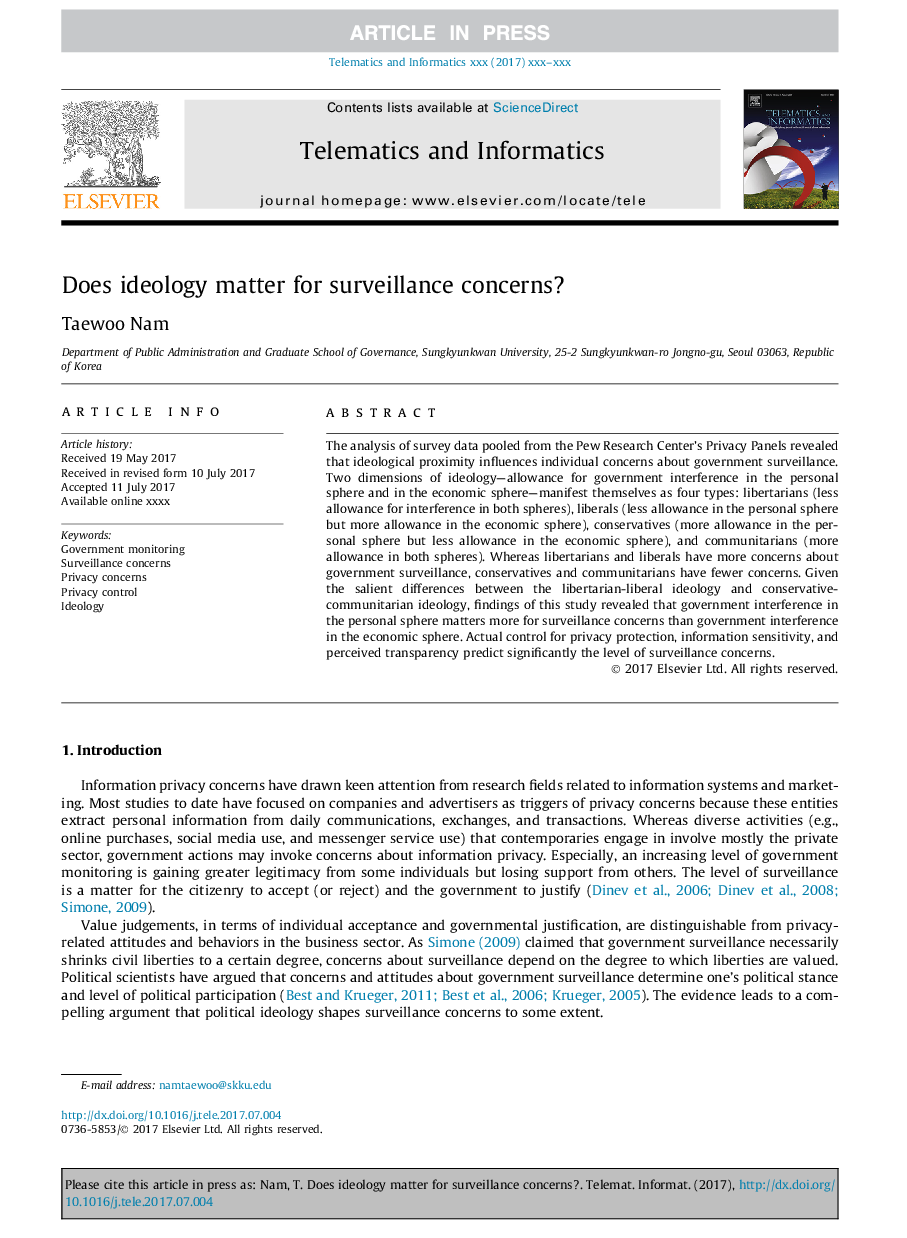| Article ID | Journal | Published Year | Pages | File Type |
|---|---|---|---|---|
| 6889853 | Telematics and Informatics | 2017 | 14 Pages |
Abstract
The analysis of survey data pooled from the Pew Research Center's Privacy Panels revealed that ideological proximity influences individual concerns about government surveillance. Two dimensions of ideology-allowance for government interference in the personal sphere and in the economic sphere-manifest themselves as four types: libertarians (less allowance for interference in both spheres), liberals (less allowance in the personal sphere but more allowance in the economic sphere), conservatives (more allowance in the personal sphere but less allowance in the economic sphere), and communitarians (more allowance in both spheres). Whereas libertarians and liberals have more concerns about government surveillance, conservatives and communitarians have fewer concerns. Given the salient differences between the libertarian-liberal ideology and conservative-communitarian ideology, findings of this study revealed that government interference in the personal sphere matters more for surveillance concerns than government interference in the economic sphere. Actual control for privacy protection, information sensitivity, and perceived transparency predict significantly the level of surveillance concerns.
Related Topics
Physical Sciences and Engineering
Computer Science
Computer Networks and Communications
Authors
Taewoo Nam,
